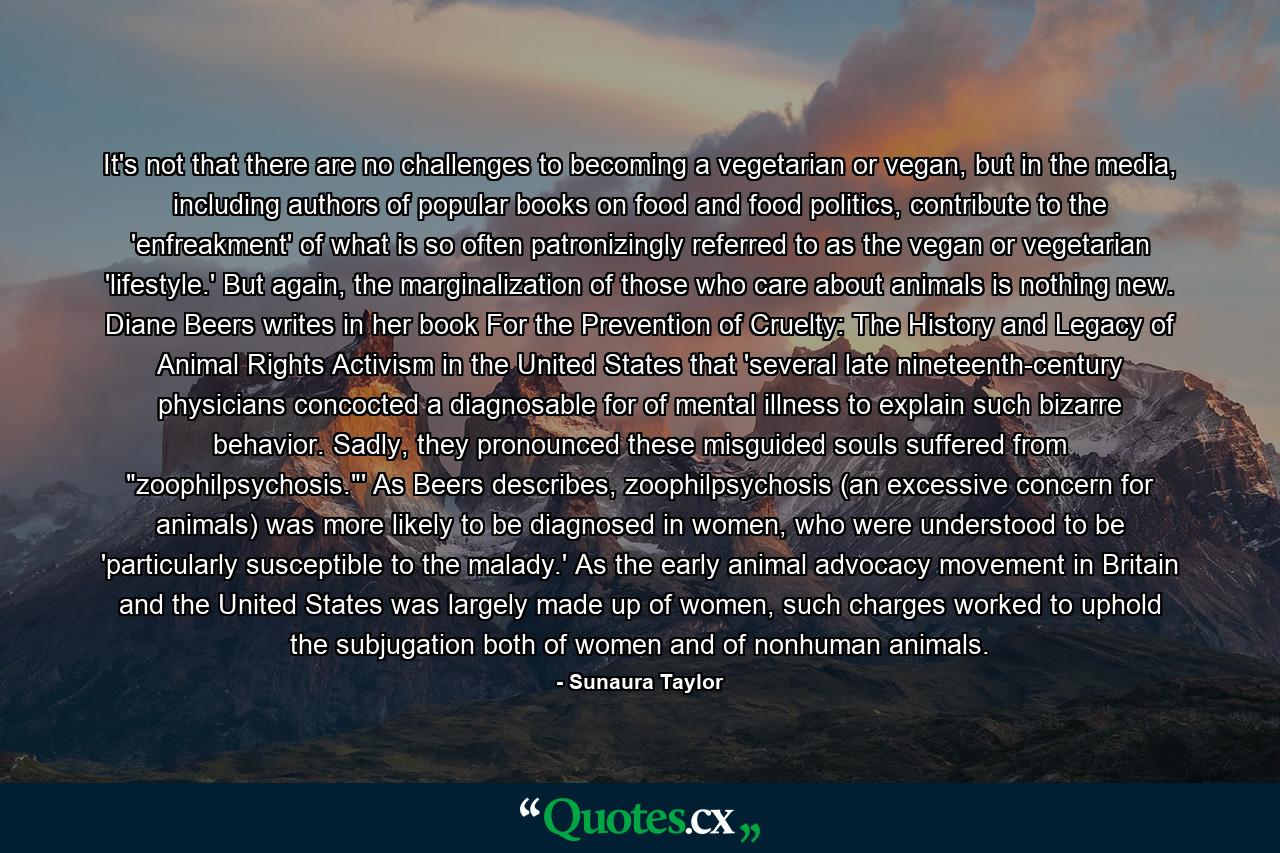It’s not that there are no challenges to becoming a vegetarian or vegan, but in the media, including authors of popular books on food and food politics, contribute to the ‘enfreakment’ of what is so often patronizingly referred to as the vegan or vegetarian ‘lifestyle.’ But again, the marginalization of those who care about animals is nothing new. Diane Beers writes in her book For the Prevention of Cruelty: The History and Legacy of Animal Rights Activism in the United States that ‘several late nineteenth-century physicians concocted a diagnosable for of mental illness to explain such bizarre behavior. Sadly, they pronounced these misguided souls suffered from “zoophilpsychosis.”‘ As Beers describes, zoophilpsychosis (an excessive concern for animals) was more likely to be diagnosed in women, who were understood to be ‘particularly susceptible to the malady.’ As the early animal advocacy movement in Britain and the United States was largely made up of women, such charges worked to uphold the subjugation both of women and of nonhuman animals.
